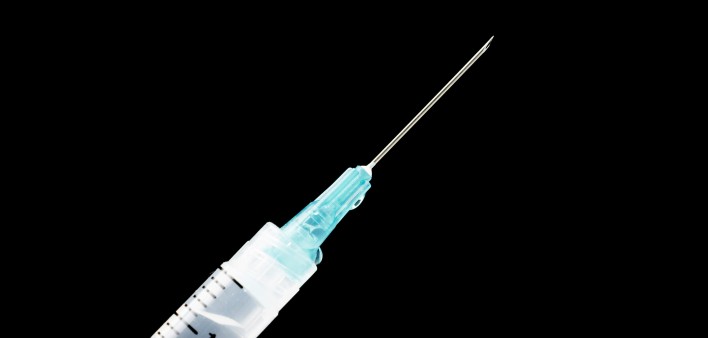The injectable long-acting antibody against HIV ibalizumab has shown promise in a trial of people with multidrug-resistant virus.
Researchers presented preliminary findings from the 24-week, single-arm Phase III TMB-301 study of ibalizumab at the IDWeek 2016 conference in New Orleans.
The study has enrolled 40 people living with multidrug-resistant HIV. During a seven-day control period, investigators monitored the participants, who were either taking their failing HIV regimen or no treatment for the virus. After that, all participants received 2,000 milligrams of intravenous ibalizumab, followed by biweekly injections of 800 mg of the antibody through 24 weeks of the study. Two weeks into this period they were put on optimized background regimens of daily ARVs.
At the beginning of the study, the average viral load among the participants was 100,287.
Researchers previously announced that 83 percent of the participants (33 of 40) met the study’s primary endpoint, which was a 3.16-fold reduction in their viral load, seven days after starting ibalizumab.
Nine participants (23 percent) did not finish the 24 weeks of the study, including four who died for reasons not related to the study’s treatment, three who withdrew from the study and two who were lost to follow-up. The researchers still factored in these individuals in their overall analysis of the treatment’s success.
At the end of the 24 weeks, participants saw their viral load drop an average of 40-fold. Forty-eight percent of the participants experienced a greater than 100-fold reduction in viral load. Of the 43 percent of the participants who took investigational drug fostemsavir as a part of their optimized antiretroviral regimen in addition to ibalizumab, nearly half developed an undetectable viral load.
There was one serious adverse health event among the participants, a case of immune reconstitution inflammatory syndrome, which may result from changing to a more active HIV treatment regimen. There were no serious adverse health events considered related to ibalizumab. Most side effects were mild to moderate. The participants did not experience any significant shifts in the results of various laboratory tests.
To read a press release about the study, click here.







1 Comment
1 Comment